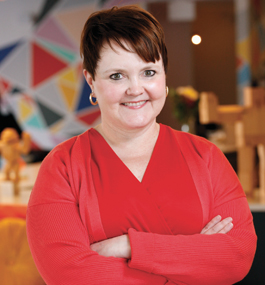Let the Data Do the Talking

Mike Lovett
Barbara Clarke, IBS MA'91
Financial analyst and angel investor Barbara Clarke, IBS MA’91, does not believe that men have all the good ideas.
So Clarke is determined to change the way the venture-capital world operates. Consider this sobering fact, she says: Eighty-five percent of venture funding goes to business teams with no women at the senior-management or executive level, even though multiple studies have shown that gender-diverse teams perform better along a number of scales.
“I do what I can as an angel investor to encourage venture capitalists to make unbiased selections,” she says. “Essentially, I tell them to put their money where their mouth is.” This means making data-driven decisions on the basis of business value and potential, instead of on personal judgments about viability, which is where gender bias can creep in.
Take Abbey Post, a startup Clarke is advising. It uses big data, including thousands of body scans, to create customized women’s clothing that fits all body types and makes customers feel great.
“The product attacks an underserved market,” Clarke says. “It works if you are short here, wide there, tall — it’s for every woman. But a lot of male investors don’t quite get it. From an economic perspective, the possibilities for Abbey Post, like other companies in markets with no competition, are huge. When investors don’t bite, it indicates to me that whatever criteria they are using to evaluate opportunity are not data-driven.”
Whether at PricewaterhouseCoopers, Cradles to Crayons or KPMG, Clarke has consistently urged the creation of diverse workplaces, where employees feel supported and heard, throughout her career. And she puts her own money where her mouth is, investing in and writing for DailyWorth, a website that provides financial advice for women.
“I’m onboard with working and investing in companies where there aren’t many women, as long as diversity is a core principle,” she says. “I’m comfortable being the only woman in the room if there’s progress being made. It’s much harder being the only woman in the room when nobody cares.”
— Samantha Mocle
